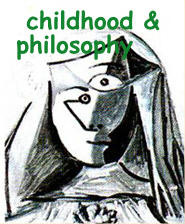individuation by the free play of experience. from nietzsche metaphysical-educational concept to john deweys socio-political-educational concept
Keywords:
Spiel, Demokratie, Individuation, Bewusstsein, ErfahrungAbstract
This paper intends to show that, from today’s point of view, Nietzsche and Dewey are complementary in their pedagogical concepts and provide valuable theoretical and philosophical background for the path to self-determination in a social context. Although there is no direct reference to Nietzsche in Dewey’s work, this “making the connection” seems justifiable insofar as Dewey sees a close relationship between philosophy and culture or civilization. Also, one can assume it was through progressive reform pedagogy that Dewey became acquainted with Nietzsche’s pedagogical value scale of individuation. But in any case there are areas of overlap in the thought of Nietzsche and Dewey with regard to their central values, such as freedom, self-determination, or the individual. Both saw themselves as educators and understood their mission as offering support for selfenhancement and individuation and also encouraging the young to think for themselves. Central to both is the value of each person’s experience, which, within the conceptual framework of free play integrating the reason of the body, leads to individuation. In “experience” the tension between “what is creative” and “the rule” is balanced out. This relates to the fact that “experience” is characterized both by an active, creative perspective and a passive, receptive one, in which one’s own action is set in relation to the change resulting from it. This leads to recognition of the underlying rule. Thus experience, the reflection of what has been experienced, leads to an increase in freedom, as noted by Dewey, who asserts a close connection between freedom and learning. For Nietzsche and Dewey, as opposed their contemporaries, the body plays an important role in this as information carrier. Both of them believe that we only open up our intellect in a truly productive way when we find our way back to our physical being. Since the reflection of experience presupposes self-reflection, a high value is placed on the “retreat to the self” in selfcultivation and the development of inner freedom. But for Dewey this phase must correspond with intensive social phases. A free attitude can only develop when the individual is given appropriate latitude for investigation and experimentation. This free space is found in play. The playing child serves as metaphor for life in its highest fulfillment, which makes possible concern for the other. Nietzsche’s “enchantment of the Dionysian,” which reconciles humans among themselves, is compared here with the democratic “way of life” of Dewey’s citizens, the free and equal individuals. This path, according to Nietzsche, begins with the young. Dewey puts it into practice for the schools.Downloads
Download data is not yet available.
Downloads
Published
2009-06-28
How to Cite
MARSAL, Eva. individuation by the free play of experience. from nietzsche metaphysical-educational concept to john deweys socio-political-educational concept. childhood & philosophy, Rio de Janeiro, v. 5, n. 9, p. pp. 103–115, 2009. Disponível em: https://www.e-publicacoes.uerj.br/childhood/article/view/20601. Acesso em: 2 may. 2025.
Issue
Section
articles




